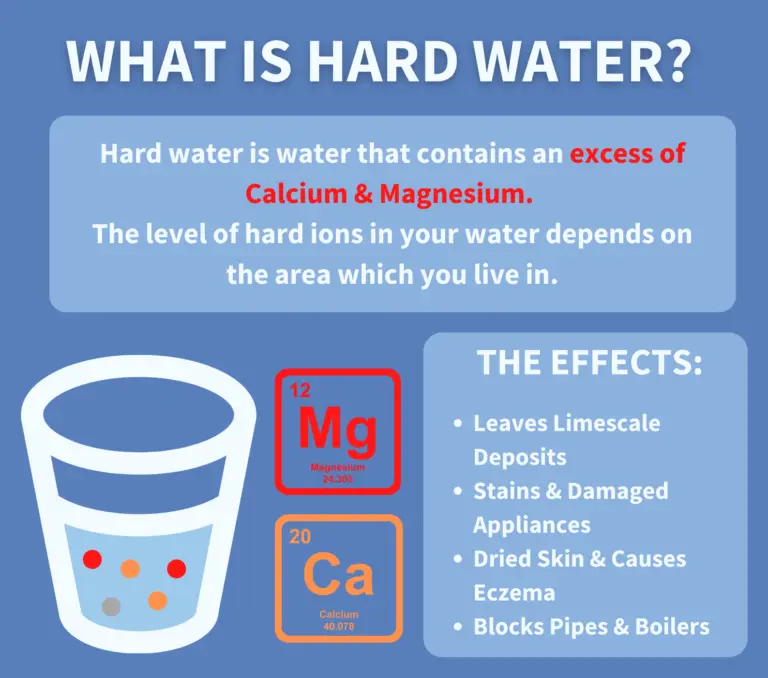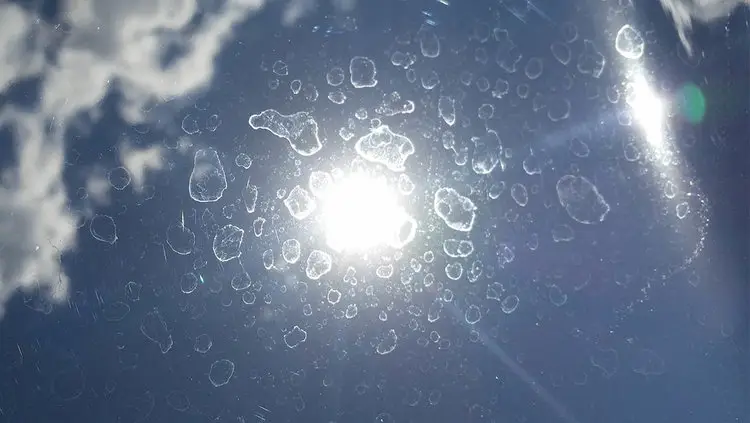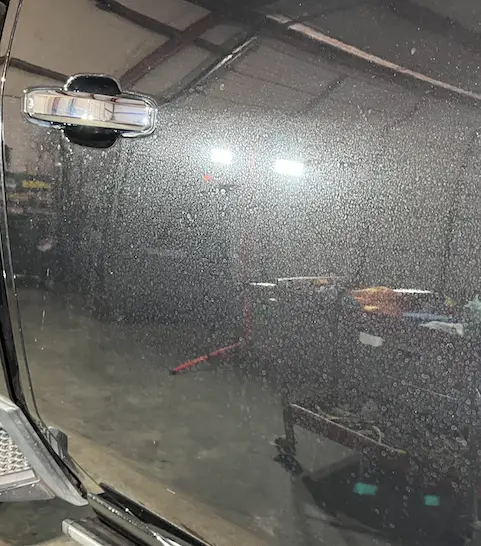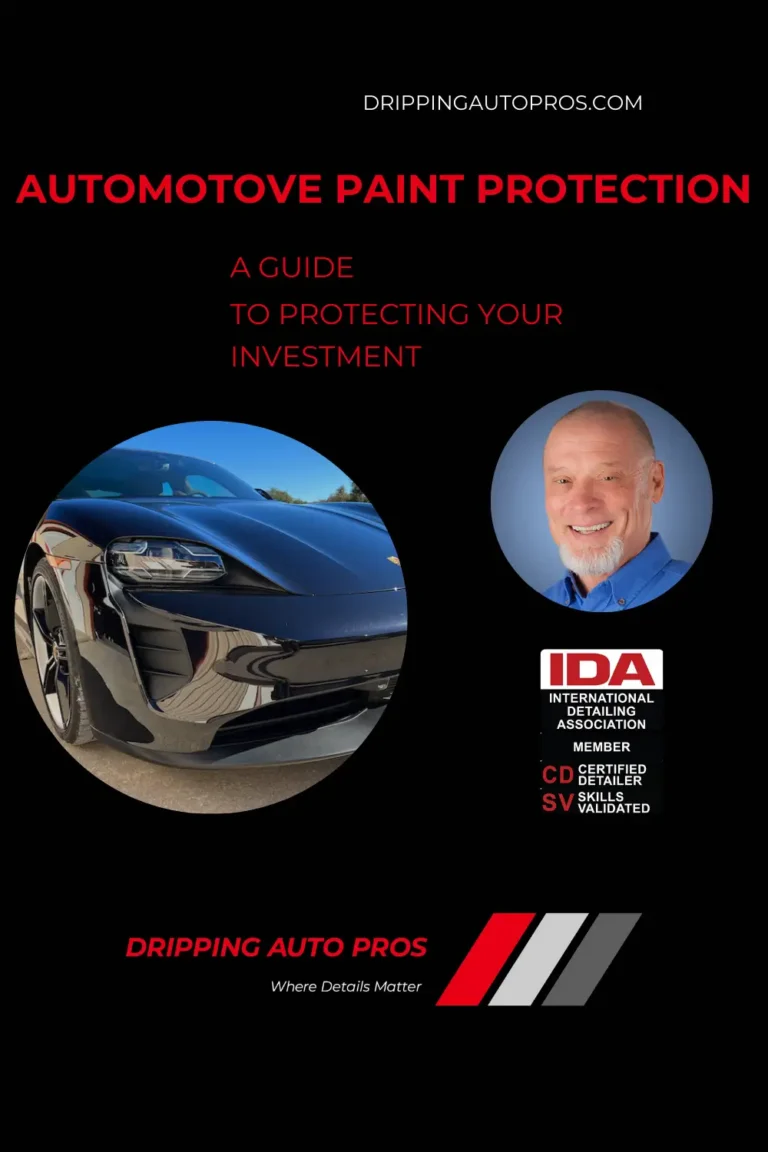The Myth About Ceramic Coatings and Hard Water Spots
There’s a common myth about ceramic coatings and hard water spots. If you’re living in Central Texas, you already know hard water can be a real nuisance. It leaves spots on your dishes, clogs up your shower heads, and—worst of all—it can damage your car’s paint and clear coat. But it’s not just about those ugly white spots. If left alone, hard water can permanently etch your car’s finish, even if you’ve invested in a ceramic coating.
Now, most of y’all reading this have high-end rides—luxury sedans, SUVs, or pickups—and keeping them looking pristine is part of the pride of ownership. So, let’s talk about why hard water is such a problem here in Central Texas, how it can damage your vehicle, and what you can do to stop it.
What Is Hard Water, and Why Is It a Problem for Your Car?

Hard water is water that’s packed with minerals like calcium carbonate and magnesium carbonate. Around here, our water flows through limestone, which loads it up with these minerals. When hard water dries on your car, it leaves behind spots made of mineral deposits. Over time, these deposits can do serious damage to your car’s paint and clear coat.
Water Spots Turn into Etching
When hard water dries, it doesn’t just evaporate—it leaves behind those calcium and magnesium minerals, which form tiny crystals on your car’s surface. These minerals bond to the clear coat, and over time, they can etch into it, leaving dull, rough spots that are nearly impossible to remove without professional help.
Alkaline Minerals React with the Clear Coat Hard water minerals are alkaline, meaning they can chemically react with the clear coat, breaking it down slowly. The longer the spots sit, the more damage they do.
Sunlight Makes It Worse Here in Texas, the sun doesn’t play around. When water beads dry on your car, they act like tiny magnifying glasses, concentrating sunlight and accelerating the breakdown of your clear coat. This speeds up fading, cracking, and general wear.
Pollution Creates a Double Whammy If acid rain or air pollutants mix with hard water spots, they create weak acids that eat away at your clear coat and even the paint underneath.
What About Ceramic Coatings?
Ceramic coatings are one of the best ways to protect your car’s paint. They’re hydrophobic, meaning water rolls off instead of sticking around, and they create a barrier that resists UV rays, dirt, and scratches. But here’s the catch: ceramic coatings aren’t invincible.
If hard water spots sit on a ceramic coating for more than a day or two, they can still etch into the coating. Here’s why:
- Mineral Deposits Embed: Hard water leaves behind minerals that can bond to the coating. While the coating slows this process, it doesn’t stop it entirely.
- Chemical Reactions: The alkaline nature of hard water can break down the ceramic coating’s surface over time.
- UV Amplification: Those water beads can intensify sunlight, accelerating etching and surface damage.
The good news is that ceramic coatings act as a sacrificial layer, protecting your car’s clear coat and paint underneath. But even with this protection, proactive maintenance is essential.

Why This Happens So Much in Central Texas
Central Texas has some of the hardest water in the country, thanks to its limestone-rich geology. Whether you’re washing your car at home or getting caught in a rainstorm, your car is constantly exposed to mineral-rich water that can cause damage if not properly dealt with.
Signs of Hard Water Damage on Your Car

- White or cloudy spots that don’t come off with regular washing.
- Rough, etched patches where the clear coat has been damaged.
- Dull or faded paint, especially on flat surfaces like the hood and roof.
- Swirl marks or scratches, often caused by trying to scrub off mineral deposits without the right tools.
How to Prevent Water Spot Damage (Even With a Ceramic Coating)

- Rinse Immediately
Whether you’ve just washed your car or been caught in a rainstorm, rinse off hard water as soon as possible. Don’t let it dry on your car. - Dry It Thoroughly
Use a clean microfiber towel or a drying aid to get rid of any remaining water. This prevents mineral deposits from forming in the first place. - Use a pH-Neutral Car Wash Soap
Many car soaps are pH-neutral, which helps neutralize the alkaline nature of hard water. Avoid using household soaps—they’re too harsh and can damage your car’s coating. - Maintain the Ceramic Coating
Regular washes and touch-up sprays will keep the coating functioning properly. These sprays replenish the hydrophobic layer, making it harder for water to stick and cause damage. - Address Water Spots Quickly
If spots start to form, use a water spot remover designed for ceramic coatings. These products dissolve mineral deposits without damaging the coating itself. - Professional Maintenance
If your car has visible water spot damage, professional detailing and paint correction can remove etching and restore your clear coat. Annual inspections of your ceramic coating can also keep it in top shape.
The Bottom Line
Hard water is a fact of life in Central Texas, but it doesn’t have to ruin your car’s paint. Whether its water spots etching into your clear coat or finding their way through a ceramic coating, the key is staying ahead of the problem with proper maintenance.
At Dripping Auto Pros, we specialize in protecting high-end vehicles from the elements. From ceramic coatings to paint correction, we’ve got the tools and expertise to keep your car looking as good as the day you bought it. Don’t wait for those water spots to become permanent—bring your car by, and we’ll help you protect your investment.
This truck was coated with a premium grade ceramic coating, yet by the time we got it, the water deposits etched through the ceramic coating and into the clear coat. The only solution in a case like this is to sand the coating and clear coat to remove the spots. Then you buff and polish and re-coat the panel.
Ken Chance is the owner of Dripping Auto Pros in Dripping Springs Texas. He is an IDA Certified Detailer, and is an accredited ceramic coating installer. He may be reached at ken@drippingautopros.com

